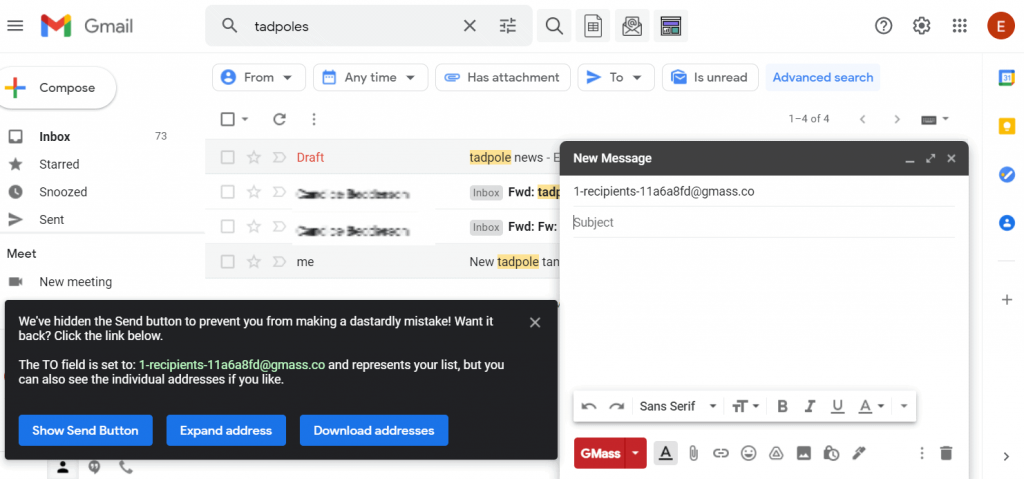Best Facts On Deciding On An Email List Website
Wiki Article
What Do I Need To Think About When Purchasing A Cpa Email Database?
When you purchase an CPA (Certified Public Accountant) email list, it's crucial to examine a variety of key aspects to ensure the list is high-quality, compliant to legal standards, and relevant to your business goals. What you should consider:1. Data Quality and Accuracy
Verify whether the origin of the information is reliable. The most reliable providers typically collect data from reliable sources such as professional directories, trade associations, or databases. Beware of lists made by scraping or from unreliable sources. They may include outdated data.
Verification process: Examine to determine if the email list was checked recently. This can reduce bounce rates and also ensures that you're reaching active, valid email addresses. Ask when the list is maintained and cleaned, since CPAs can frequently change jobs or firms.
Segmentation and Filters: A good CPA list should offer segments, for example location (city, state or country), industry specialization (e.g. auditing, taxation, financial planning) and years of experience or firm size. This can help you increase the effectiveness and relevance of your marketing campaigns.
2. Legal Regulations
Data Privacy Laws - Ensure the email list complies to laws and regulations at the national level like the California Consumer Privacy Act. The list must include email addresses that have been obtained legally and only with consent.
Conformity with the CANSPAM Act The list of addresses used in U.S. commercial email campaigns must be in compliance to the CANSPAM Act. This includes implementing opt-out methods and not using deceptive subject lines or other content. Infractions to the law could be punished with fines and legal problems.
Opt-in Consent - Ensure the email addresses have been obtained through consent to opt-in. The recipient must have granted their consent to receive email from third-party marketers. This lowers the chance of receiving spam complaints, and also increases engagement.
3. Provider Reputation
The reputation of the service is something that needs to be investigated thoroughly. Check out reviews, testimonials from customers and reviews to gain a sense about what customers who have used the service previously experienced. Information from established companies is more accurate and reliable.
Transparency - The provider must be transparent in the way data is collected and updated. If the service provider isn't able to clearly explain their method and the reasons behind it, they should be flagged as flags of red.
Customer Support: A reliable and dependable support service is crucial if you require assistance with creating lists, troubleshooting or understanding the compliance requirements. Good support can save time and effort throughout the process of launching your campaign.
4. Cost and ROI
Pricing Models. Different companies have distinct pricing models. Some charge by the contact, while some offer a flat rate or subscription. Examine the costs and return you can expect, while also balancing cost with quality of the list.
Check out refund policies. In the case of a large number invalid or incorrect email addresses, a majority of service providers offer a replacement or refund policy. A guarantee can give security.
Don't solely focus on cost. A list's price may seem appealing but it could lead to poor engagement or bounces that are high in the event that its quality is poor. Make sure to choose lists with excellent data accuracy, segmentation and worth.
5. Data Ownership and Usage
It is a matter of determining whether you're purchasing the list only for one use or if the list is yours and you can make use of it in ongoing campaigns. Owning a list can be more flexible for longer-term campaigns, but single-use lists are more expensive.
Shared lists: Find out if your email list is private or shared. shared lists: Make sure you know if your email list is exclusive to the buyer or if others are also able to access it. Shared lists can lead to audience fatigue, if recipients receive a constant stream of marketing emails.
6. Data Integration and Format
CRM Compatibility - Make sure that the list of contacts is provided to you in a format compatible with your CRM, email marketing software or other software. It allows easy importation and administration of your information.
Usability: Assess the ease at which the data can be divided and manipulated when integrated in your software. Personalization and targeting is more efficient with a well-organized list.
7. Ethical Besorgnization
Relevance of Content CPAs are highly-skilled professionals Therefore, it's essential to provide relevant, valuable content. Unrelated messages could damage your brand's reputation or cause more complaints about spam.
Be mindful of the frequency with which you send out emails to people you have on your list. Over-communication will lead to complaints about spam and unsubscribes. This can affect the reputation of the sender.
Conclusion
Consider the accuracy of the data, legal compliance and also the reputation and experience of your CPA email provider, to make sure that you are getting value for your the money you spend. Effective segmentation and ethical practices can increase the amount of engagement and ROI and ensure a positive perception of your business. Have a look at the recommended cpa email list for blog info.

If You're Looking To Purchase An Oil Industry Email List, There Are 10 Important Aspects To Remember.
It's important to consider a variety of factors before purchasing an email list in the gasoline and oil industry. This will guarantee that the list contains high-quality information and is legal compliant and has a high-quality target. These are the top ten points to consider:
1. Relevance of the Target Audience
Industry Priority: Ensure that the list is targeted at the oil and gas industry. An organized email list should comprise professionals such as engineers and geologists. Operations managers and decision makers from downstream, upstream and midstream operations.
Job Titles and Roles: Seek out a list of job titles and roles of the top key decision makers (executives, managers, engineers, etc.) You may also look for specific companies.
2. Source of list and Reputation of vendor
Reputable suppliers: Only purchase from trusted and reputable email list providers who follow the best practices in data collection. Avoid purchasing from companies with questionable provenances. They could have low quality data, or even more important, legal problems.
Quality of Data: Read or testimonials about the service to assess the quality and reliability.
3. Quality, Freshness, and Accuracy of Data Quality
Data Age: Contact information must be up-to-date. The personnel of oil and gas companies is continuously changing, which could lead to outdated contact information.
Verification Process: Make sure the vendor is up-to-date and regularly examines their contacts list to eliminate those who aren't responsive or inaccurate.
4. Compliance with Regulations
Legal Compliance. Check that your list is in compliance local and internationally with rules, such as GDPR and CAN-SPAM. These regulations govern the use of personal data. Infractions could lead to sanctions and legal risks.
Opt In Process: Determine whether the email addresses on the list were gathered in accordance with their consent. This means that they had opted to be notified.
5. Segmentation Customization, Segmentation and Configuration
Custom segmentation. The best list providers offer the option of segmenting according to specific criteria such as location, role in the business, size of the company, or subsector within oil & gas.
Custom Filters - Based on the goals of your campaign you're aiming for, ensure that your list is customized to meet criteria like geographical location and size of business or any other requirements.
6. Rate of Deliverability
High Deliverability Rates: A high-quality email list should have high deliverability rates generally 95% or more. Lists that are not of high quality often contain high bounce rates, which could harm your sender's image and marketing efforts via email.
Ask for previous data or statistics on deliverability to assess the quality of a list.
7. Volume Vs. quality
Qualitative over Quantitative: The list should not only be large but also highly accurate and focused. A smaller, but highly-quality mailing list could be more efficient than one that's big and generic.
Engagement Metrics. Prioritize engagement over number of contacts. A well-engaged audience is more responsive to your advertising.
8. Pricing and Cost Structure
Transparent Pricing is transparent. Know the structure of pricing. Beware of lists that appear to be extremely low priced, since they might not be of high-quality or offer any worth.
Return on investment (ROI). Compare the price of the list with anticipated conversion rates to gain an idea of the ROI. Sometimes, paying more for a specific list can save you money at the end.
9. Privacy and security of data
Data Protection: Make sure that the vendor uses strong data security measures. The list provider must ensure that all personal information is secured from access by unauthorized persons.
Confidentiality: Confirm that the company will not share or resell your information, particularly when your company requires privacy and discretion.
10. After-sales Customer Support
Customer Support: The vendor has to provide continuous support to customers in the event that they face issues with their lists or require assistance with their implementation.
List Replacement: A good list provider will provide an exchange or refund in the event of any problems with the list.
Be aware of these aspects to make sure you're buying the right oil and gas list of email addresses that is effective, compliant and geared to your goals for business. View the recommended oil and gas industry email list for website examples.
